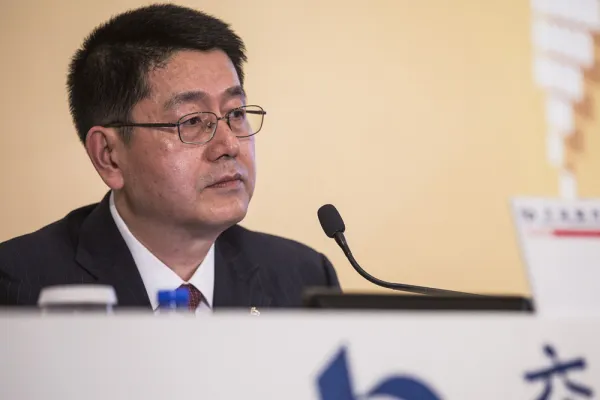For those of us in the business of analyzing big, public institutional investors (i.e., ‘Giants’), the China Investment Corporation has always been something of a fascination. The fund has, in round numbers, half a trillion dollars under management and boasts a sponsor (China) that has another three and half trillion in reserves. So the CIC could quite easily become the single largest institutional investor in the world. And that’s fairly remarkable given the fund only came into existence in 2007. The CIC is thus one of the more interesting (and stared at) funds out there.
And so, as is the case with all the Giants out there, we the analysts look, read, talk, study, and, eventually, report. (At least we report what we can, given confidentiality commitments). But even with all that work the CIC has remained a bit of question mark. The fund is rather transparent (at least on a superficial level), but actually penetrating and understanding the fund’s ontology (world view) and methodology (organizational and investment strategies) has remained a challenge. So, for example, it’s hard for me to explain to others how the Chinese Giant actually thinks about the investment universe, where it sees opportunities, and how it plans to access those opportunities. And so we make do with...
Stop the presses!
We finally have some real insights into all of these issues; and from a real CIC insider that just gave a detailed interview on specifically these topics: Dr Fei Zou!
Mr. Zou joined the CIC in 2008 to help the nascent fund build its proprietary trading operation. He would later launch the fund’s special investments group and execute on roughly $20 billion worth of transactions. In short, he was at the fund from the beginning and spent four years helping the CIC execute on its mandate. So he’s ideally situated to comment on the fund’s ontology and methodology. Here is...
Zou on the CIC’s investment philosophy: "...target companies should have the potential to benefit from an association with the emerging Chinese market...We wanted to invest in companies that may take advantage of the changes in China. It was about locating those firms and then catalyzing that opportunity.”
Zou on the fund’s organization: “For many investments, CIC was no different to a normal institutional hedge fund or private equity investor, with the caveat that the holding period was likely to be longer. “We would use the industry standard risk models, with very limited use of derivatives for hedging.”
Zou on the fund’s investment execution: “These regions where we did not have a lot of familiarity definitely carried more risks...Often our approach would be to invest alongside trusted and reputable local partners, who could help manage investments and adapt to local cultures...Our aim was to restrict ourselves to minority financial interests. We wanted to be non-intrusive and did not want to control or run companies.”
Zou on the influence of politics: “I am not sure there is a political agenda in respect of sovereign wealth funds, but our approach was apolitical and purely commercial...Every deal is like a marriage, and if you feel the other side does not really like you, the easiest and best thing is to walk away.”
Fascinating!






